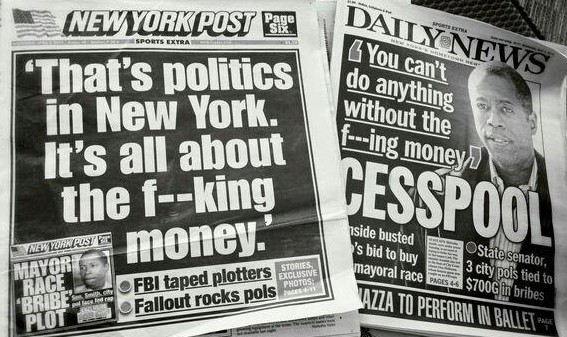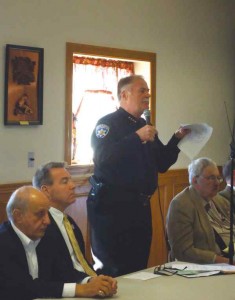Thursday October 10, 2013 | By: LARRY WROBLEWSKI
LANGFORD — A panel, convened to explain the New York Secure Ammunition and Firearms Enforcement Act gun control measure, drew a large audience at the Langford-New Oregon Fire Hall on Sept. 28.
The dais was comprised of elected officials, gun rights advocates and a legal team, all ready to share their perceptions about the law.
Leading off was New York State Assemblyman David DiPietro, an expressed critic of the act, who said that he has been targeted by anti-gun activists who are “coming after him.” In response to those individuals, DiPietro said, “Bring it on. The people in my district don’t support this law.”
The assemblyman continued, “This is not a traffic law; this is your right to protect your family.” He also spoke about what he called the negative impact the law is having on New York businesses. “Remington Arms is for sale and a lot of companies around the state have been affected,” he said.
State Sen. Patrick Gallivan weighed in, calling the SAFE Act “an illustration of the divide between New York City and the rest of the state.”
He said that, while no one believes a gun should be in the hands of someone with a mental illness, “these regulations make no sense.” Gallivan said that both he and DiPietro have introduced measures to repeal the act, but do not have the votes needed, at this time. The senator said that legal challenges to the act hold the most promise.
Citing his lengthy law enforcement career, the former county sheriff said, “I know what works and what doesn’t work, and this act doesn’t work.”
According to Gallivan, the next avenue is “to change your elected officials.”
Erie County Sheriff Timothy Howard spoke about the background check required for each ammunition purchase. “By law, when I buy a round at my gun club, the club must do a background check and, if later that day, I buy another round, they are supposed to do the check again,” he said.
The sheriff said that, if he were to pass a bullet to a friend on the range, he would be committing a misdemeanor, under the SAFE Act. “The same charge could be applied to someone giving ammunition to a family member,” he said.
Howard attributed some of the new law’s faults to New York Gov. Andrew Cuomo. “The governor has never provided funding to enforce the law, but [he] complains when law enforcement says it will not enforce the law,” Howard said.
Erie County Clerk Chris Jacobs said that a lack of funding was a prime concern for him, as well. The clerk said that, due to unfunded mandates and state cuts, his department cannot receive the necessary background checks in a timely manner.
Jacobs added that he will continue to refuse to release pistol permit holders’ data requested by The Buffalo News and added that he has also not transferred the information to law enforcement, in a stated effort of protecting individuals’ rights.
The clerk urged permit holders to fill out opt-out forms to keep them off any public lists that the courts could eventually force him to release.
Jacobs said that he saw the new regulations as unnecessary. “In every instance where guns have been taken away, they would have been taken, under the old provisions,” he explained.
Edward Rath, the Erie County legislator who, with that body’s minority caucus and two Democrats, was able to pass a resolution calling for the repeal of the SAFE Act, said that he saw the state divide clearly.
“Fifty-two other counties have passed resolutions to repeal, as well,” he said. “The counties that have not are all downstate.”
The Williamsville Republican also took issue with the speed of the SAFE Act’s passage, saying, “The governor violated his own legislative protocols to give bills a review period before a vote. This was all done for political gain.”
Local attorneys James and Max Trebant, along with Syracuse lawyer Richard Lombardo, briefed the crowd on current legal challenges to the law, including a current class action suit against the governor and the attorney general.
That suit, according to Lombardo, seeks “restitution and just compensation for every magazine or gun that has become illegal under the law.” Lombardo said that it is unacceptable for gun owners to lose the value of their weapons and estimated that, if this suit is successful, the state could face an amount of liability from $2 billion – $4 billion.
The audience members were urged to familiarize themselves with the law and develop talking points for discussion. “We need to pass this information on to everyone,” said Bill Walters, who organized the event. “We need to use every peaceful measure to protect our rights. There are more gun owners in New York state than the number of people who voted in last year’s election.”

